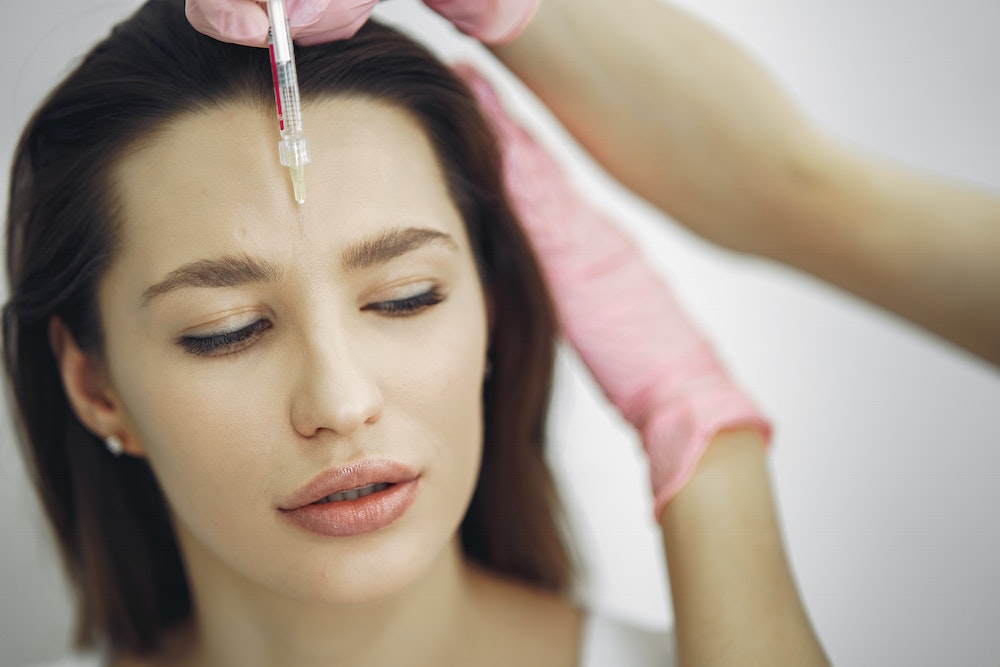5 Side Effects of Botox Injections You Need to be Aware of
Have you ever tried Botox? Or are you thinking of getting Botox to decrease signs of aging? Botox is an injectable wonder drug. Botox can eliminate all wrinkles, crow’s feet, and laugh lines. Although Botox can do wonders for your face, it does have some side-effects. Some people have reported having their faces almost paralyzed. Therefore, we will be discussing the five most common side effects of Botox injections. Do you get droopy or dry eyes? Does Botox injections hurt your eyesight? Does Botox have any long-term effects? These are some of the various questions we will go over in this blog.
Minor Side Effects
The good thing about Botox injections is they are considered one of the safest cosmetic and corrective procedures. The majority of side effects caused by Botox injections are temporary. They fade away within days, or last as long as the Botox treatment itself, typically three to six months. In fact, from 1989 to 2003, only 36 adverse cases of Botox injections used as cosmetics have been reported to the FDA. Furthermore, 13 of these cases were the cause of an underlying condition other than the Botox.
Minor side effects caused by Botox include:
- Bruising
- Pain
- Swelling of the injection site
- Fever
- Headaches
- Cold flashes
To avoid these minor side-effects, follow your doctor’s pre and post-injection instructions. Make sure to tell them about medications and supplements you’re taking. If you’re afraid of side-effects, you can elect to sit out on your friend’s next Botox session.
Dry Eyes and Droopy Eyelids
Professionals claim that when Botox is injected around the Orbicularis muscle, it can cause dry eyes. Orbicularis muscles are responsible for the opening and closing of the eyelids. Due to the inability to close eyelids completely, you may experience dry eyes. If this happens to you, you can use eye drops and ointments. You might have to wait until the Botox wears off on its own, but the ointments and eye drops will help. If you want to avoid this side-effect, professionals can administer Botox injections between the eyebrows. A good doctor will do their best to eliminate all functions laterally.
Another problem associated with Botox is droopy eyelids. There are two reasons why you might experience droopy eyelids. If you received Botox in the forehead, the injection might cause your eyebrows to descend. Then, those descended eyebrows will make them appear droopy. Droopy eyes can also happen when the Botox is used between the eyes, or just over the brow.
Excessive Tearing
While Botox is a common corrective procedure for teary eyes, it can have the opposite effect as well. Botox injections might spread a little beyond the injection site. For this reason, a small, highly concreated Botox dose may be used when working near the eyes. Large diluted doses have a higher risk of spreading. Allergic reactions to Botox can sometimes cause excessive tearing. You can also experience teary eyes, along with blurred or double vision, as well as impaired vision.
Unqualified practitioners administering Botox injections put you at a much higher risk of eye problems. To avoid this, always seek out a professional. An expert will always be your best bet.
Uneven Eyebrows
These are among the most frustrating side effects. Besides, who wants to wear a surprised expression all the time? Why does it happen? Our eyebrows have fan-shaped muscles beneath them called corrugators. The muscles in the forehead, where lines appear, are called frontalis. When you’re worried about signs of aging in these areas, the doctor gives you a Botox injection to smooth out the muscles. The result is a useful appearance.
However, there are chances that the corrugator and frontalis receive Botox injections, and one side may be slightly more impacted than the other. As a result, you can have uneven eyebrows. The good news is that the effect lasts as long as the Botox does. As the effects wear off, so will those uneven eyebrows. At this point, the look of surprise will disappear as well.
Botulism-Like Symptoms
If used for cosmetic or corrective procedures, Botox can cause Botulism issues. Botox is made from a toxin. This toxin is produced by bacteria, which can cause a life-threatening condition called botulism. Generally, botulism happens when adults eat food contaminated by bacteria or have a wound infected by a bacterium that lives in soil. Children can get it when they ingest infected soil. It’s often a life-threatening medical emergency.
However, Botox injections use this toxin in tiny quantities. This same toxin paralyzes or weakens the targeted muscles and blocks specific nerves. Like every procedure, there is a risk that you’ll develop complications, such as botulism-like symptoms. These symptoms include:
- Difficulty swallowing
- Speaking problems
- Breathing problems
- Vision problems
- General fatigue
- Loss of bladder control
- Dry mouth
- Headaches
- Dizziness
- Problems with sleeping
An analysis of the botulism patients caused by Botox found that these symptoms usually occur within zero to 36 days of receiving Botox. Although it’s very rare if you’re experiencing these symptoms, you need to speak to your doctor immediately.
Long-term Effects
So far, we have learned about the temporary effects of Botox. Most of these symptoms go away in days. With that said, what are the long-term effects? The chances of long-term side-effects are minimal if you’re getting Botox injections for the first time. However, people who get this procedure frequently may see these effects last for more extended periods. A person who gets Botox procedures frequently may see these effects continue for more extended periods. One study focused on 45 patients who received regular Botox injections over the course of 12 years. Twenty cases of adverse reactions were reported during this period. These reactions included:
- Blurred vision
- Dizziness
- Neck weakness
- Vomiting
- Difficulty swallowing
- Heart palpitations
- Edema
- Hoarseness
The best way to avoid side-effects is to work with a licensed medical practitioner. It’s not worth sporting eyebrows that make you look like Ursula from the “The Little Mermaid.”
In Conclusion
Botox can be a great thing. However, it’s critical to understand the side-effects that are involved in the procedure. Generally, Botox is very common and safe to receive. If you want to learn more or have any other questions, you should contact a professional. Lastly, if you’re interested in microneeding procedures, contact the professionals at Aesthetic Lane. The benefits of a microneedling procedure can be considerable. Visit Aesthetic Lane in Orlando for further information.







